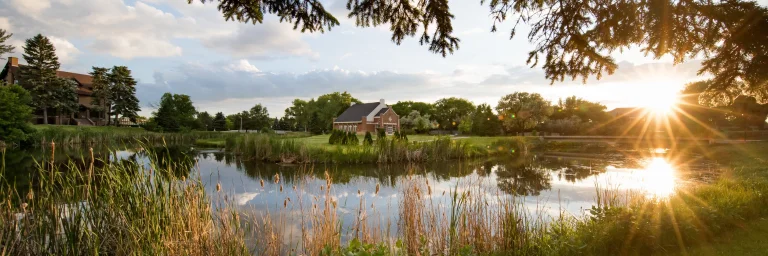Biology Minor
Supplement your education with an understanding of modern research, critical thinking, essential biological concepts, quantitative reasoning and broad exposure to biology.
A minor in Biology allows you to explore the science of living things. Take on an increasingly important role that grapples with global issues such as overpopulation and climate change.
- Program type:
- Minor
- Format:
- On Campus
- Est. time to complete:
- 2-3 years
- Credit hours:
- 20
Why minor in Biology?
The biological sciences will play an increasingly important role in coming years, as society grapples with global issues such as overpopulation and climate change. With a Biology minor from UND, you'll gain:
- An understanding of modern research techniques
- Critical-thinking skills
- A strong understanding of essential biological concepts
- Quantitative reasoning ability
- Broad exposure to all levels of biological organization, from molecules to ecosystems
What majors pair well with a Biology minor?
Pairing a Biology minor with certain majors can enhance your skill set and broaden your career options in fields such as healthcare, research, and environmental science. Alternatively, you can deepen your expertise with a bachelor of Biology degree. Here are some bachelor’s degrees that pair well with a Biology minor:
- Biomedical Engineering Degree: Combining a Biology minor with biomedical engineering merges principles of engineering with biological sciences. Students who are planning on applying to medical school may pursue the pre-medicine route in biomedical engineering.
- Environmental Studies Degree: Environmental science explores the interaction between living organisms and their environment. You'll be ready for careers focused on studying and managing ecosystems, biodiversity conservation, and environmental sustainability.
- Psychology Degree: Offers a deeper understanding of the biological foundations of human behavior and is particularly valuable for students with an interest in neuroscience.
Biology Minor Highlights
-
Build strong research and communication skills by participating in interactive classes and graduate and faculty research projects.
-
Engage in independent studies under direct faculty supervision.
-
Work in state-of-the-art facilities including two greenhouses, animal rooms for terrestrial and aquatic organisms, tissue culture facilities, a biology core molecular facility and four field stations.
-
Participate in internships or experiential learning supported by local and national programs such as the National Science Foundation Research Experience for Undergraduates (NSF-REU) and the National Institutes of Health Summer Undergraduate Biomedical Research Experience (SUBRE).
-
You'll have the opportunity to tailor your coursework to your primary areas of research, whether it's conservation biology, grassland ecology, or study of animals and their parasites.
-
Join organizations such a the Wildlife Society and North American Vascular Biology Association (NAVBO).
Biology Minor Courses
Leading in the Field
UND researchers are studying the burning of grasslands and the long-term benefits to biodiversity.
